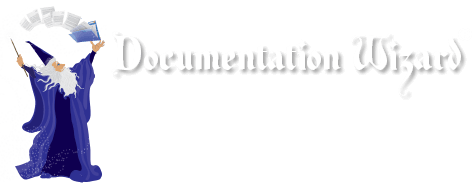Question & Answer: How do I write an Intake Summary without violating client confidentiality?
QUESTION
I’m struggling with how to effectively document in a manner that satisfies “medical necessity” requirements while also protecting the privacy of my clients. I understand how to keep progress notes succinct by focusing on the overarching themes and symptoms rather than diving into the specifics of what’s discussed in session. But I find myself struggling when it comes to intake notes.
When it comes to intake documentation, striking a balance between thoroughness and brevity while providing context is challenging. I could use some help on how to approach intake documentation in a manner that aligns with the “less is more” principle.
ANSWER
Given the requirements of intake summaries, resolving the tension between the need for thoroughness and the imperative of confidentiality, the struggle is real. There is no need for explaining the context of events. Yet, the intake summary needs to be specific to the client. The key is to refrain from narrating the client’s story and instead focus on providing factual and concise information.
Utilizing checkboxes and dropdowns wherever feasible can streamline reporting facts. For example, a list of symptoms is perfect for checkboxes. But a summary that is all checkboxes and dropdowns could be about anyone.
Short narratives are necessary because they personalize the information. In your narrative, opt for broad brushstrokes rather than delving into specific details.
Two Examples of Short Narratives
A history of sexual abuse is most likely important to the client’s presenting problem and should be noted in the intake summary. However, the narrative should avoid recounting the specifics of the abuse. Instead focus on the symptoms and functional impairments that are result of the abuse. “Client reports a trauma history that contributes to symptoms of anxiety and being alienated from her family.” Do not write, “Client reports she was abused by her uncle, her family did not believe her, and they are now estranged.”
Another example is a client who comes for individual therapy to work through issues around having an affair. Instead of stating, “Client reports having an affair, which is causing symptoms of anxiety,” I suggest writing something like, “Client seeks therapy to discuss ambivalence about his relationship with his husband; the thoughts, feelings, and behaviors associated with this ambivalence and the anxiety experienced as a result.”
The broad brushstrokes of information, along with the checkboxes or dropdowns to list the symptoms, provide enough information to justify the diagnosis without divulging too much personal information.
Reduce Your Documentation Anxiety
If you’re unsure about what’s required in an Intake Summary or want one that’s been approved by 3 attorneys and a bioethicist, check out Documentation Wizard’s Clinical Forms Package. These forms were designed around a simple (but not simplistic) formula and take the guess work out of what and how much to write. It includes an Intake Summary (formally called the Diagnostic Summary), which acts as the foundation for your treatment plan. A good one contains the information to help determine the prognosis of your client from a strengths-based perspective. Plus, Documentation Wizard’s Clinical Forms help reduce Documentation Anxiety!
Beth Rontal, LICSW, the Documentation Wizard® is a nationally recognized consultant on mental health documentation. Her Misery and Mastery®trainings and accompanying forms are developed to meet Medicare requirements. Her forms have been approved by 3 attorneys and a bioethicist, and have been used all over the world. She mastered her teaching skills with thousands of hours supervising and training both seasoned professionals and interns when supervising at an agency for 11 years. Beth’s Documentation Wizard® training program helps clinicians turn their clinical skill and intuition into a systematic review of treatment that helps to pass audits, protect income, and maintain professional standards of care.

As always, You keep proving yourself to be an expert in being the for real deal documentation wizard!!!! I am so glad that YOU are gifted to help so many of us learn this very important aspect of the work we do as professional healers.
Thank you so much, Delores! I appreciate the time you took to let me know. It’s my pleasure to empower therapists to do their documentation in a way that not only passes an audit but it clinically sound.